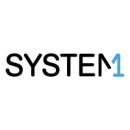AI in marketing and advertising has changed how companies sell their products and services in big ways. Ad campaigns are being greatly enhanced by artificial intelligence-driven platforms, with 26 percent of companies using the technology to increase metrics like customer engagement, conversion rates and EBITDA margins.
How Does AI in Marketing Work?
AI in marketing and advertising is used to segment customers, message them at optimal times and personalize campaigns. Oftentimes, AI also works to automate these processes to save businesses time and money.
These companies below use AI to create advertising campaigns and fine-tune marketing strategies.
AI in Marketing Examples
AI in Marketing Examples
- Automate lead outreach and meeting scheduling.
- Identify prospective customers.
- Provide chatting and customer support services.
- Tailor product ads.
- Track performance analytics and campaign results.
Location: Malibu, California
ClickMint is a tech-enabled marketing agency that uses AI diagnostics to analyze UX telemetry, attribution data and behavioral event streams. It can identify and prioritize high-impact CRO opportunities, relying on a platform that layers reinforcement learning, causal inference modeling and predictive analytics.
Location: Fully Remote
To build stronger bonds between brands and customers, Ada has developed an AI-based customer service automation platform. Companies can rely on Ada’s technology to scale customer support, save time for sales agents and initiate timely interactions and connect with consumers across digital and social channels. Now businesses can provide 24/7 service and simplify repetitive tasks while refining their outbound messaging strategies.
Location: Denver, Colorado
AdCellerant is a digital marketing agency serving businesses with tech solutions for everything from email marketing and YouTube campaigns to web development and programmatic display advertising. The company has integrated AI capabilities into its product portfolio, which provides insights and software tools to support effective marketing campaigns across multiple countries and markets.
Location: Berlin, Germany
Contentful relies on AI to power digital tools that allow brands to build engaging omnichannel customer experiences. Its solutions include automations to streamline repetitive tasks and an AI content generator, both of which help marketers make content creation processes more efficient.
Location: New York, New York
Businesses rely on EliseAI’s conversational AI platform to automatically and quickly respond to customer questions and requests. The technology — which works across text, chat and email — doesn’t just reply to queries. It also executes specific tasks based on customers comments, all while maintaining a “human touch.”
Location: New York, New York
Movable Ink is an email marketing company that allows customers to change their emails after they’ve already been sent. Through its SaaS technology, Movable Ink also allows marketers to adapt and personalize messages based on customer behavior. Their AI tool, Movable Ink Da Vinci, works to understand customer needs, autonomously run campaigns and optimize every element of email content to streamline workflows and enhance customer lifetime value.
Location: Mountain View, California
Google’s responsive search ads enable marketers to enter up to 15 headlines and four description lines. With the Google Ads feature, entrepreneurs can jumpstart their businesses by tailoring their ads to geographic range, budgetary needs and other factors. This tool also pairs well with Google Cloud, which relies on AI and machine learning to deliver even more in-depth audience insights to marketers.
Location: Armonk, New York
IBM empowers companies to fine-tune their marketing strategies with AI. The AI assistant IBM Watson locates prospective audiences, selects relevant creative content and engages target audiences in one-on-one conversations. As a result, businesses have found better ways to spend their marketing budgets while shaping ad campaigns around audiences’ interests.
Location: New York, New York
AWeber offers small businesses its marketing platform that includes landing pages, ecommerce tools, web push notifications, behavioral tagging and automated email campaigns. It provides its clients with a tool called AWeber AI, where users can create, format and edit content to automate the email marketing process. The company allows businesses to provide their customers with subscription-based memberships or payment plans.
Location: Marina del Rey, California
System1 uses AI and machine learning to help advertisers target and engage the right customers. Its responsive acquisition marketing platform includes solutions brands can use to help them connect with high-intent customers across a broad range of advertising verticals and channels.
Location: Fully Remote
EZ Texting offers SMS marketing solutions designed to help businesses optimize lead generation and customer engagement. AI Compose is the company’s generative AI tool that streamlines content creation by drafting messages that align with branding and are relevant to the target audience.
Location: New York, New York
Tildei’s platform lets brands use generative AI agents to engage customers one-on-one across channels to provide personalized, real-time marketing and commerce support in any language. Although the company’s corporate office is in New York, it hires employees remotely and has a flexible work policy.
Location: New York, New York
Agentio is an AI-native platform designed to transform the creator marketing industry by simplifying and scaling the purchase of sponsored content. The company’s ad platform uses proprietary AI and predictive models to match brands with top creators. It automates the traditionally manual processes for negotiation, bidding and content approval. The company allows marketers to buy authentic, creator-led ads with the same measurable performance metrics as digital ads on platforms like Google or Meta.
Location: Palo Alto, California
Publica offers an adtech platform for connected TVs, which are televisions that can stream video from the internet, such as Smart TVs. Publica’s proprietary Elea AI uses machine learning algorithms to predict which advertiser’s content is about to run an ad program, allowing ad publishers to make strategic choices around controls like ad frequency caps, advertiser block lists and competitive separation.
Location: San Francisco, California
Quantcast’s AI and machine learning engine Ara helps brand marketers and agencies make data-centric decisions by studying audiences’ behavior patterns and gleaning campaign insights in real time. The company’s platform also remains compliant with consumer privacy standards, so teams can build predictive models and adjust ads while respecting their audiences’ boundaries.
Location: San Francisco, California
Salesforce equips teams with the ability to develop personalized marketing campaigns with the company’s Marketing Cloud. Not only does this platform compile customer data, but it also collects insights when customers engage with a campaign. Teams then gain a holistic perspective of their audiences and can make adjustments on the fly, resulting in AI marketing content that meets the changing preferences of potential customers.
Location: New York, New York
RTB House is set on improving online brands by using AI in advertising. The company uses its deep learning ad campaigns and ad-buying engine to help brands drive sales and complete pure branding and personalized retargeting. The company has worked with businesses like eBay, Steven Madden, Audi and Miinto.
Location: San Francisco, California
NextRoll develops marketing technology that leverages machine learning to gather data, deliver insights and provide businesses with tools for strategically targeting buyers. The company’s AdRoll product helps brands boost awareness, increase site visitors and retain customers with tailored ads. Its RollWorks offering helps brands grow revenue with account-based marketing solutions that work to deliver deep buyer insights.
Location: Long Island City, New York
Telecommunications company Optimum connects U.S. customers with internet, television, cell phone and landline service. One of the company’s newest branded tools is Alice, an AI that works as a planning and activation platform for media buying. With Alice, media planning is conducted according to a granular, articulated plan that is vetted for ROI and value from the start, taking much of the guesswork out of campaign building and media buying.
Location: New York, New York
Yext helps customers find answers to questions about a business with its AI-powered product suite. The company’s platform stores all relevant info in a database called a Knowledge Graph. A business can then access this data to provide answers to search queries, build SEO-friendly web pages, share listings on third-party publishers’ platforms and monitor online reviews. With Yext’s analytics feature, companies can also gather insights on their products’ performance and make adjustments accordingly.
Location: Santa Barbara, California
Invoca uses AI to provide call tracking, analytics and conversation intelligence services for marketers, attributing calls to specific digital campaigns. The AI platform simplifies attribution by analyzing live phone conversations and creating machine learning models to give accurate views of actionable data and conversions. Marketing teams can then spot consumer trends and make automated adjustments to their campaigns.
Location: Santa Monica, California
GumGum develops applied computer vision technology that advertisers and marketers can use to place ads more strategically. The company’s contextual intelligence platform Verity uses AI technology to scan videos and images that span multiple platforms, helping marketers provide more relevant ads, maintain a positive brand image and increase engagement and brand recall.
Location: Helsinki, Finland
Smartly.io is an AI-powered social media advertising platform trusted by brands like Uber and eBay. Using artificial intelligence and data capabilities, Smartly enhances campaign management and creative production while also providing real-time insights for optimized advertising strategies across various channels. The company is headquartered in Helsinki with locations around Europe and the U.S.
Location: Santa Monica, California
Ylopo provides its AI-powered digital marketing platform to real estate professionals. Its platform targets and converts leads using property ads and its products Ylopo AI Text and Ylopo AI Voice. The company says that Ylopo AI Text has had over 25 million conversations and has a 48 percent response rate from real estate clients.
Location: United States
Nativo operated remotely throughout the United States. The company uses artificial intelligence in its ad software in order to engage customers at scale. It says that it aims to bridge the gap in its client companies’ strategy through active engagement in editorial environments.
Location: Las Vegas, Nevada
Influential is an influencer marketplace that employs AI through IBM’s Watson to suggest social media influencers to brands and companies. With Market Intelligence, the company analyzes data to identify relevant influencers for brands based on audience demographics as well as psychographic and contextual data. Influential’s platform also takes brand safety into account, making it an ideal tool for developing creative strategies, marketing campaigns and optimized paid media.
Location: Fully Remote
Fluent offers businesses tailored digital experiences through its network of lead-generating websites. It connects clients with target audiences through targeted campaigns and opt-in surveys to drive engagement and sales. The company says it provides a post-transaction ad solution with millions of monthly active users.
Location: Boston, Massachusetts
Affectiva is helping brands gather insights from qualitative observations with its emotion AI toolkit. Relying on features like sensors and webcams, the company is able to diagnose consumers’ emotional reactions to marketing content. Teams can then learn from these analyses to rework confusing content, emphasize compelling elements and craft positive brand experiences for customers.
Location: Mountain View, California
Lily AI makes e-commerce marketing software that relies on AI to generate personalized product recommendations based on users’ searches. The software takes a user’s own words, known as “colloquial search terms,” and turns them into a curated list that can be defined by something as concrete and specific as “black dress” or as abstract and subjective as “quiet luxury sweater.” Lily’s content generation feature creates automated and customized SEO copy to support specific aspects of a given product that will appeal to a particular user.
Location: Fully Remote
Yieldmo is an adtech company that offers a “global omnichannel exchange,” known as the Yieldmo Smart Exchange, for ad content. On the exchange, machine learning algorithms use predictive analytics to pick and choose specific pieces of ad content for individual ad buyers and publishers, in effect creating a bespoke content recommendation with predicted performance according to the client’s priority KPIs.
Location: New York, New York
AnthologyAI aims to allow consumers to control their personal data and earn money through the use of its mobile app. It also offers businesses the ability to access its intelligent Knowledge Graph that has consumer behavioral data that is compiled with the explicit consent of users. It collects more than 100 million data points every day that cover aspects that include financial transactions and media consumption. This enables businesses to gain insights and maintain consumer privacy.































